I’ve been an HR leader for many years and have come to believe that it’s time to challenge long-standing HR practices that may no longer serve our employees or organizations effectively. One such practice is the traditional performance review. I firmly believe that HR leaders should consider eliminating these annual evaluations in favor of a more dynamic and supportive approach to employee development. Here’s why.
Performance reviews create unnecessary stress
Performance reviews, particularly annual ones, create a stressful environment for both employees and managers. The anticipation and pressure of a once-a-year evaluation can lead to anxiety and decreased morale. According to a survey by Adobe, 22% of employees have cried after a performance review, and 37% have looked for another job as a result of the review process.
They foster a culture of avoidance
Traditional performance reviews can lead to a culture where issues are only addressed during the review period. This “wait until the review” mindset prevents real-time feedback and continuous improvement. Instead of fostering ongoing dialogue, it creates a cycle of avoidance and surprise, where employees may be blindsided by feedback they could have addressed earlier. A study by Gallup found that employees who receive regular feedback are more engaged and perform better than those who do not.
Halo and recency effects
One of the significant flaws in performance reviews is the halo, horn, and recency effects. The halo and horn effect is when managers allow a positive or negative trait, even a personal trait, to influence their entire evaluation of an employee. Similarly, the recency effect leads to an overemphasis on the employee’s most recent behavior rather than their overall performance throughout the year. This skews the accuracy and fairness of the evaluation process. Research from the Journal of Applied Psychology highlights how these cognitive biases can distort performance ratings and affect employee morale.
Inconsistency and subjectivity
Performance reviews are often inconsistent and subjective. Different managers may have varying standards and interpretations of performance criteria, leading to unfair and inconsistent evaluations. This inconsistency can damage trust and transparency within the organization, and decrease employee engagement. A study by Deloitte found that 58% of executives believe their current performance management approach drives neither employee engagement nor high performance.
Shifting away from annual reviews and towards continuous feedback
A few leading organizations have moved towards continuous feedback models, which provide regular, real-time feedback. This approach is more aligned with the dynamic nature of work today. It allows for immediate recognition of achievements and quick correction of issues, fostering a culture of continuous improvement. Companies like Adobe and GE have successfully implemented continuous feedback systems, resulting in higher employee engagement and performance.
A new approach: Growth, Plan, and Support (GPS)
At Texas Roadhouse, we implemented the GPS (Growth, Plan, and Support – now Growth, Perform, and Support) system to replace traditional performance reviews. The philosophy behind GPS is grounded in a supportive and collaborative approach where responsibility for career progress is shared between the employee and the leader. This system focuses on celebrating accomplishments, providing ongoing performance guidance, and planning for growth and development. Here’s how it worked:
Key components of GPS:
- Growth: Leaders help employees identify and pursue growth opportunities. This includes setting stretch goals and suggesting assignments that align with their interests and career aspirations.
- Perform: Regular check-ins to discuss performance, achievements, and areas for improvement. This helps maintain a continuous dialogue about progress and challenges.
- Support: Leaders provide the necessary support to help employees succeed, including resources, feedback, and mentorship.
Frequency and communication: GPS discussions are held at least twice a year – an annual discussion around the employee’s work anniversary and a mid-year check-in. Ongoing feedback is incorporated into regular one-on-one meetings. Leaders are reminded to schedule these discussions, ensuring they happen consistently.
Documentation and reporting: Each GPS discussion is documented, with both the leader and employee signing off on the outcomes. This documentation is retained at the department level, providing a record of the employee’s development journey. Monthly status reports help leaders manage and track the completion of these discussions.
Benefits of moving away from traditional performance reviews
- Timely feedback: Regular GPS discussions provide employees with timely feedback, allowing them to make adjustments and improvements continuously.
- Reduced anxiety: Frequent, informal check-ins reduce the anxiety associated with annual performance reviews.
- Enhanced engagement: Employees feel more engaged and valued when their development is prioritized through regular conversations and personalized support.
- Improved performance: By focusing on growth and support, employees are more likely to develop the skills and behaviors needed to excel in their roles.
Supporting data
Studies indicate that organizations implementing continuous feedback and development models, like GPS, see higher employee engagement and lower turnover rates. According to Gallup, employees who receive regular feedback are 3.6 times more likely to be engaged at work. Additionally, the Corporate Leadership Council found that performance increases by 39% when managers focus on employees’ strengths during feedback sessions.
Conclusion
It’s obvious that traditional performance reviews are outdated and often do more harm than good. Switching to a system like GPS can help HR leaders create a more supportive, flexible, and effective environment for employee growth. This change not only boosts employees’ morale and performance but also leads to better business results.
For HR leaders who want to truly impact their organization’s culture and employee development, it’s time to move beyond performance reviews and adopt a more ongoing and collaborative approach.
This article is part of the Precision Matters series. In the series, HR and L&D leaders share their expert strategies for utilizing Learning & Development tools to craft precise, impactful business outcomes and foster organizational growth.
Ready to turn insights into impact?

















